MercoPress. South Atlantic News Agency
Agriculture
-
Wednesday, March 5th 2025 - 09:12 UTC
China halts meat imports from Brazil, Argentina, Uruguay, and Mongolia

China’s customs authorities have suspended beef imports from seven meatpacking facilities across Brazil, Argentina, Uruguay, and Mongolia as of March 3, 2025. The affected companies include two Argentine exporters (Frigorífico Regional General Las Heras SA and Frio Dock SA), three Brazilian slaughterhouses (Frisa Frigorífico Rio Doce S/A, Bon-Mart Frigorífico Ltda, and JBS S/A), one Uruguayan facility (Frigorífico Sirsil SA), and a Mongolian supplier. No official reason for the measure was provided, though it follows a 2024 record of 2.87 million metric tons of beef imports, which led to an oversupplied market and historically low domestic beef prices in China.
-
Friday, February 28th 2025 - 10:07 UTC
Paraguay passes EU beef production standards review
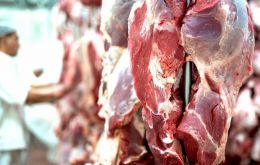
Paraguay's National Animal Health and Quality Service (Senacsa) confirmed this week that the European Union's (EU) Directorate General for Health and Food Safety (DG Sante) has satisfactorily concluded an audit of the South American country's beef production. Conducted in September 2024, the audit evaluated official controls and certification systems, including checks on pharmacologically active substances, pesticides, and contaminants.
-
Wednesday, February 26th 2025 - 09:37 UTC
Export of live animals do not violate Brazilian law, federal court ruling
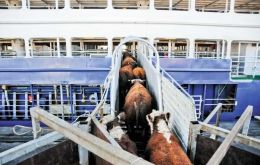
A Brazilian Federal Court has ruled that the export of live animals for slaughter does not violate Brazilian law. The unanimous decision of the Federal Court overturned a lower court ruling that had suspended the activity at all Brazilian ports.
-
Monday, February 24th 2025 - 09:22 UTC
China sells corn seeds to Argentina
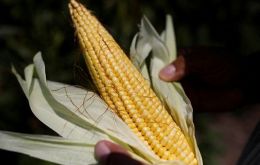
Citing sources in the eastern city of Qingdao, China's news service Xinhua reported Monday that 20 kilograms of corn seeds were shipped to Argentina in late January after being quarantined by the Asian country's customs. These seeds are known as the “chips of agriculture,” it was also explained as Chinese authorities deemed this export as a milestone.
-
Saturday, February 22nd 2025 - 10:49 UTC
New Uruguayan meat packing plant joins list of companies hit by uncertainty
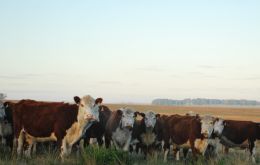
A new crisis in a meat packing plant in Uruguay left some 160 workers fearing for their livelihoods after the Paso de los Toros company halted operations, thus adding to the growing list of plants in crisis, which already included Scheneck, Casa Blanca, Lorsinal, and Rondatel, all of them in connection with the fraud scandal involving the financial company Conexión Ganadera, whose director, Gustavo Basso, died in a traffic accident amidst investor claims.
-
Wednesday, February 19th 2025 - 08:42 UTC
Uruguay on avian flu alert after detection in Argentina

Uruguay's Ministry of Livestock, Agriculture and Fisheries (MGAP) declared a state of health alert due to an outbreak of avian influenza in Tres Isletas, in the Argentine province of Chaco, it was reported Tuesday in Montevideo. The measure seeks to protect public health and national poultry production as the malady poses risks to biodiversity, the poultry sector, and public health. It can cause sudden bird mortality, respiratory and neurological symptoms, hemorrhages, and diarrhea, it was also explained.
-
Saturday, February 15th 2025 - 10:35 UTC
Paraguay hopes to double beef exports to Morocco
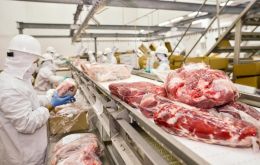
Paraguayan meat shipments to Morocco are expected to double after a team from the South American country met with buyers this week to discuss cooperation in the agricultural sector, with an emphasis on accessing advanced technology and essential fertilizers. Presiding over the mission to Rabat was Representative Carlos Alberto Núñez Salinas of the Latin American and Caribbean Parliament (Parlatino).
-
Wednesday, February 12th 2025 - 21:26 UTC
January FAO Food Price Index down 1,6% from December but 6,2% higher year ago

The FAO Food Price Index, the benchmark for world food commodity prices, declined in January, averaging 124.9 points during the month, down 1.6% from its December level. The drop was driven by significant decreases in the international quotations for vegetable oils and sugar, FAO reported.
-
Tuesday, February 11th 2025 - 19:26 UTC
Taiwan largest market for Paraguayan pork exports
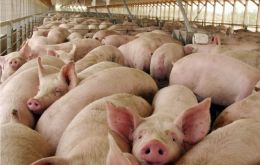
Taipei's Embassy in Asunción confirmed this week that Paraguay's pork exports to Taiwan grew by 108% last year, thus grabbing an 87% share of the South American country's shipments of the product, yielding revenues around US$ 29 million.
-
Tuesday, February 11th 2025 - 08:32 UTC
Uruguay’s President-elect Orsi appoints key figures for science, technology, and innovation agencies

Uruguay’s incoming president, Yamandú Orsi, has announced the leadership of key agencies overseeing science, technology, and innovation. The move aims to strengthen coordination among institutions such as the National Agency for Research and Innovation (ANII) and the National Meat Institute (INAC).